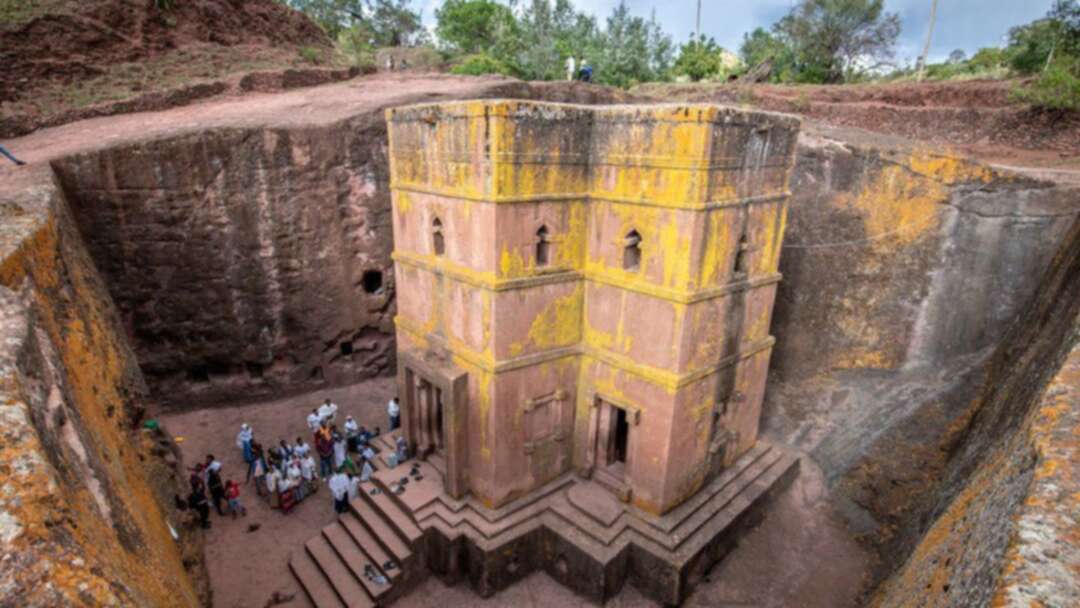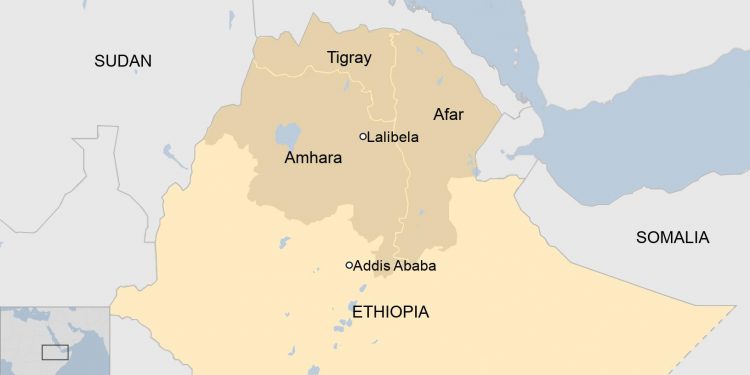-
Rebels from Tigray region take Lalibela, a Unesco world heritage site

The BBC reported that rebels from Ethiopia's northern Tigray region have taken control of the town of Lalibela, a Unesco world heritage site in neighbouring Amhara region.
The British broadcasting corporation said Lalibela, home to 13th Century churches hewn from rock, is a holy site for millions of Orthodox Christians.
According to a local official, residents have been fleeing the rebel advance.
Thousands have been killed since war broke out last November. Fighting is now spreading into Amhara and Afar, another region bordering Tigray.
Millions of people have also been displaced.
Both the Tigray rebel forces and the Ethiopian army and its allies have been accused of committing human rights abuses and war crimes.
Read more: UK area bids to join UNESCO World Heritage list
The deputy mayor of Lalibela, Mandefro Tadesse, told the BBC that the town was under the control of the Tigray rebels.
He said there had not been any shooting, but residents were fleeing from the town and he was concerned about the safety of the historic churches.
Mr Mandefro said: "This is the world's heritage, and we must cooperate to guarantee that this treasure is preserved."
The US State Department called on Tigrayan forces to respect the cultural heritage of Lalibela, as Washington becomes increasingly concerned over the the conflict.

It should be noted that there are 11 medieval monolithic cave churches in Lalibela carved out of rock that date from the 12th and 13th Centuries. They were built as a substitute for pilgrimages to the Holy Land, which was unreachable at the time
The churches were designated a Unesco world heritage site in 1978
They are tended to by priests of the Ethiopian Orthodox Tewahedo Church.
Source: BBC
Image source: Getty-BBC
You May Also Like
Popular Posts
Caricature
BENEFIT Sponsors BuildHer...
- April 23, 2025
BENEFIT, the Kingdom’s innovator and leading company in Fintech and electronic financial transactions service, has sponsored the BuildHer CityHack 2025 Hackathon, a two-day event spearheaded by the College of Engineering and Technology at the Royal University for Women (RUW).
Aimed at secondary school students, the event brought together a distinguished group of academic professionals and technology experts to mentor and inspire young participants.
More than 100 high school students from across the Kingdom of Bahrain took part in the hackathon, which featured an intensive programme of training workshops and hands-on sessions. These activities were tailored to enhance participants’ critical thinking, collaborative problem-solving, and team-building capabilities, while also encouraging the development of practical and sustainable solutions to contemporary challenges using modern technological tools.
BENEFIT’s Chief Executive Mr. Abdulwahed AlJanahi, commented: “Our support for this educational hackathon reflects our long-term strategic vision to nurture the talents of emerging national youth and empower the next generation of accomplished female leaders in technology. By fostering creativity and innovation, we aim to contribute meaningfully to Bahrain’s comprehensive development goals and align with the aspirations outlined in the Kingdom’s Vision 2030—an ambition in which BENEFIT plays a central role.”
Professor Riyadh Yousif Hamzah, President of the Royal University for Women, commented: “This initiative reflects our commitment to advancing women in STEM fields. We're cultivating a generation of creative, solution-driven female leaders who will drive national development. Our partnership with BENEFIT exemplifies the powerful synergy between academia and private sector in supporting educational innovation.”
Hanan Abdulla Hasan, Senior Manager, PR & Communication at BENEFIT, said: “We are honoured to collaborate with RUW in supporting this remarkable technology-focused event. It highlights our commitment to social responsibility, and our ongoing efforts to enhance the digital and innovation capabilities of young Bahraini women and foster their ability to harness technological tools in the service of a smarter, more sustainable future.”
For his part, Dr. Humam ElAgha, Acting Dean of the College of Engineering and Technology at the University, said: “BuildHer CityHack 2025 embodies our hands-on approach to education. By tackling real-world problems through creative thinking and sustainable solutions, we're preparing women to thrive in the knowledge economy – a cornerstone of the University's vision.”
opinion
Report
ads
Newsletter
Subscribe to our mailing list to get the new updates!






















